3D Anaglyph Imaging
Also called stereo photography. The basic idea is to take two photos from different positions. This pair of photos represent the left and right eyes perspective. The photos can be taken at the same time with a pair of camera, or can be taken with a single camera by taking one photo and setting the camera in a second position and then taking the second photo. Since the photo represent the eyes perspective positioning the camera(s) should reflect this fact for accurate stereo effect.
Illustrated here is the anaglyph type of stereo photography where one of the photos, the photo taken from the perspective of the left eye, is turned to a gray scale a colored with a single color (usually red) and the second photo, the photo taken from the perspective of the right eye, is also turned to a gray scale but colored with the complementary color of the first photo's color (in the case were the first photo is red the second photo will be cyan). The two photos are then composited and viewed with special glasses where a red lens is over the right eye and a cyan lens is over the left eye. The result is that the right eye sees only the right portion of the composited photo and the left eye sees only the left portion of the composited photo thereby giving the perception of spatial depth in the photo.
The viewing glasses should be familiar as they are the same ones handed out for black and white 3D movies in the 1950s.
Here are some examples: (be sure to put on your viewing glasses red of the left eye and cyan over the right eye)
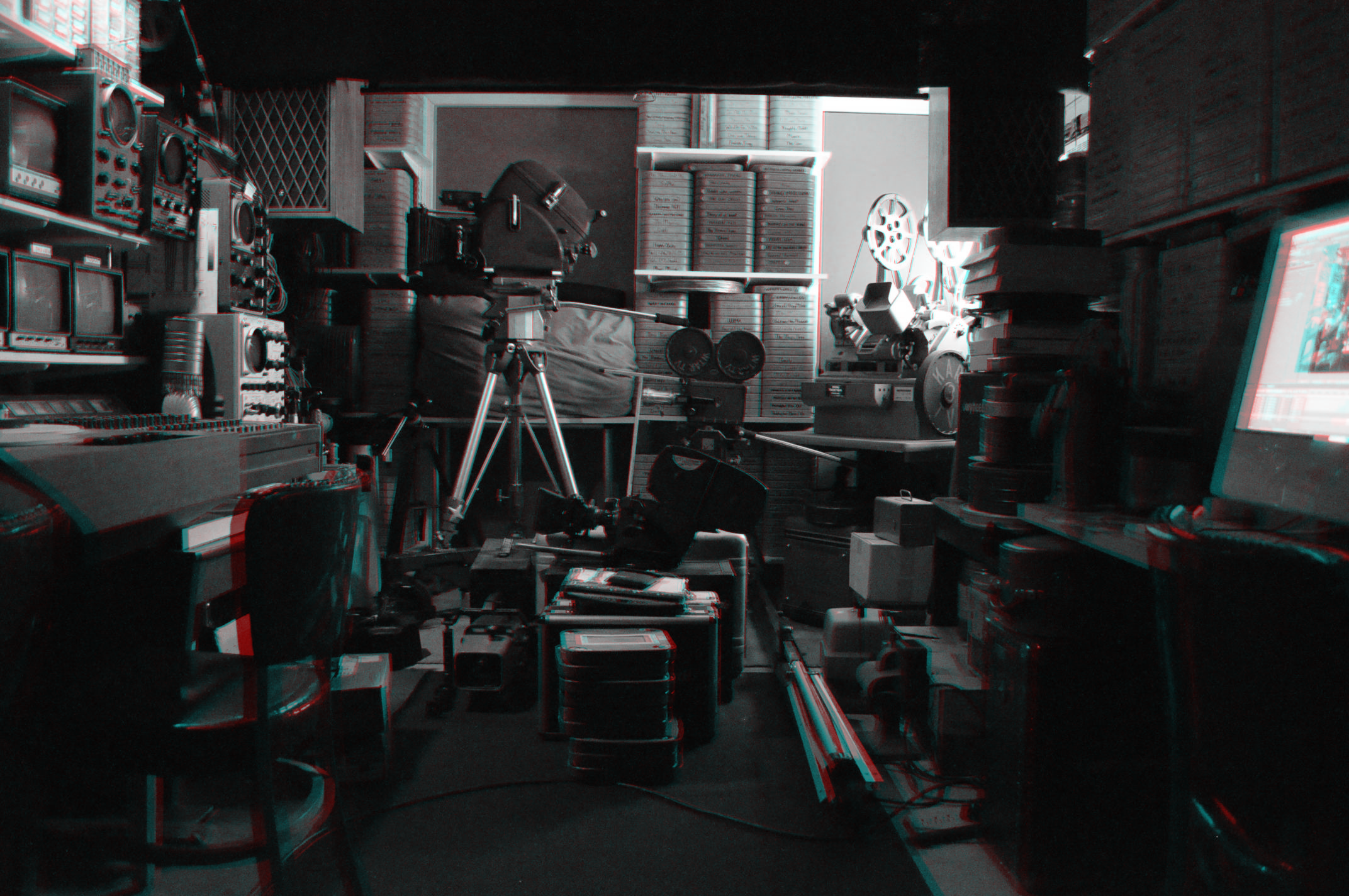
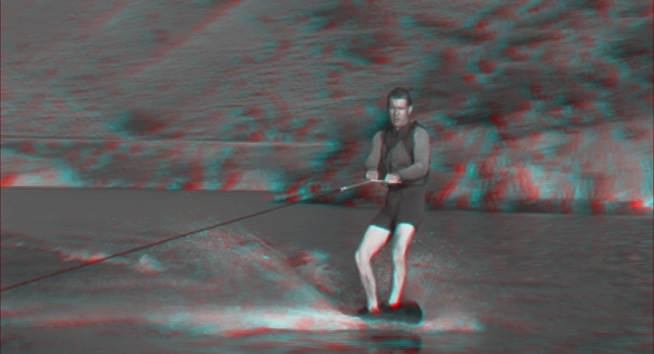
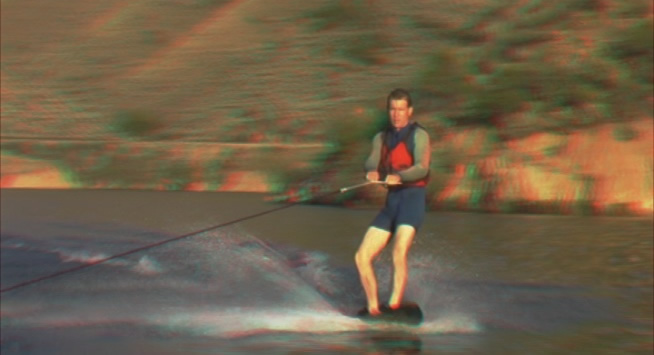
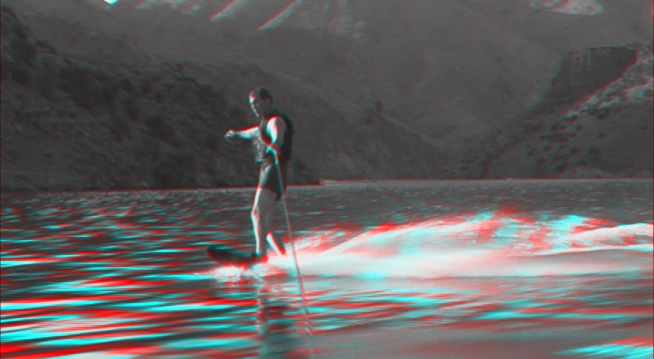
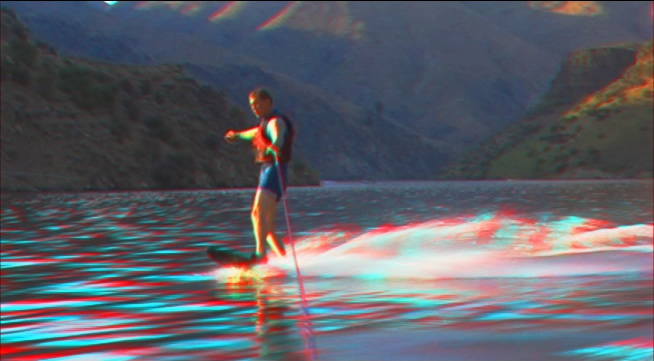
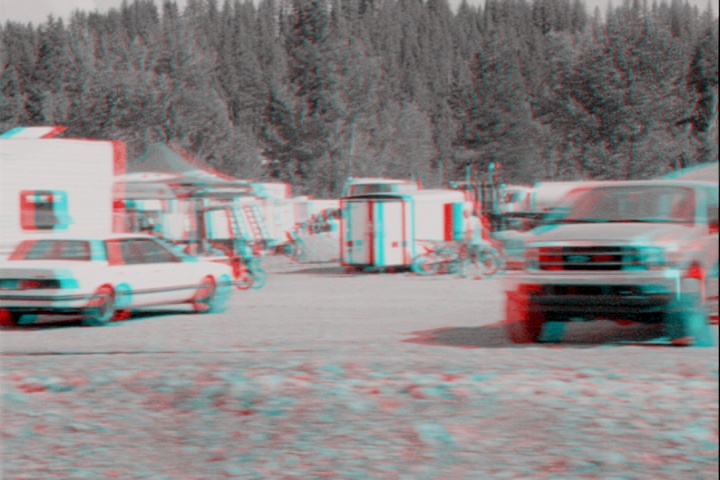
The following three photos are essentially the same photo but they differ in the space between the two camera positions. The first photo the right and left camera positions are relatively close together, while in the second and third photos the camera positions move further and further apart. The effect on the perceived depth is noticeable.
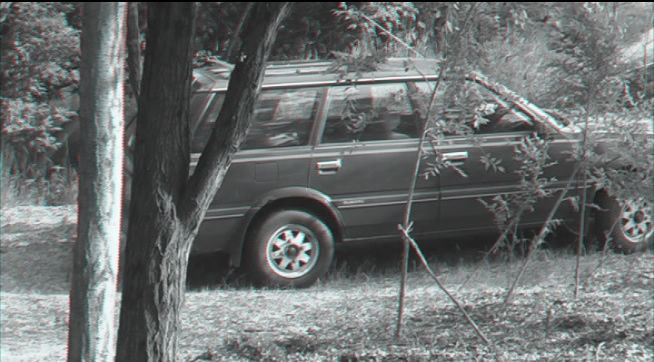
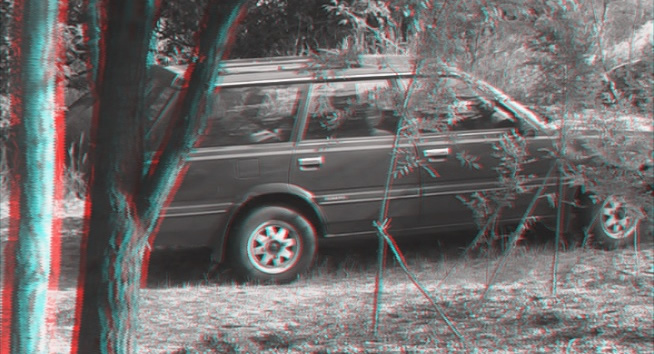
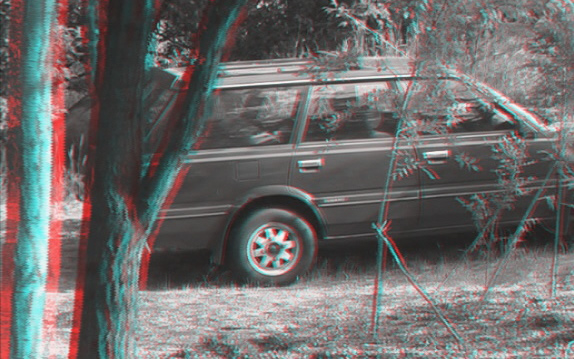
All of these photos were taken with a single camera. In fact they were taken with a motion picture camera where the camera was moving from right to left. Individual photos were lifted from the film strip and used as regular image pairs for regular stereo photography.









